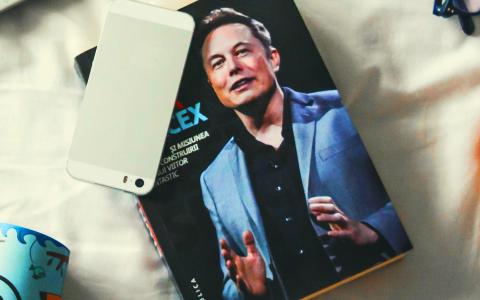
Elon Musk insightfully remarked, “In tumultuous macroeconomic conditions, even top-tier entities face challenges.” He further emphasized Tesla's resilience by stating, “The less robust will falter,” making it evident that Tesla stands strong amidst uncertainties. A recurring theme during Tesla's earnings discourse was interest rates, referenced 11 times by Musk.
The trajectory of these rates is paramount for market prognosticators. We observe bond yields persistently ascending, with the 10-year Treasury yield nearing 5%. Given this backdrop, Jerome Powell’s forthcoming speech at the Economic Club of New York becomes a pivotal market event, preceding the central bank's announcement on Nov.1.
The prevailing economic ambiance is nudging enterprises to recalibrate. Nokia has announced significant workforce reductions, slashing up to 16%, as American consumers tighten their purse strings. Concurrently, Netflix is leveraging its anti-password-sharing success to justify price increments.
Conversely, Tesla's strategy is distinct: to eclipse competitors by adopting price reductions to amplify market presence. Such reductions are unconventional during inflationary phases, whereas Netflix’s strategy of price enhancement aligns more traditionally with inflationary tactics.
Musk rationalized these reductions, emphasizing that the uptick in interest rates — inflating auto loan payments for consumers — necessitated these cuts to retain price stability. While casting shadows on the Federal Reserve's policies has its merits, one cannot overlook the aggressive price dynamics in the electric vehicle segment, intensified by contenders like the Buffett-endorsed BYD from China. Although Tesla may weather this storm, the broader economic landscape is indeed challenging numerous American corporations.
Tesla’s Q3 outcomes fell short of Wall Street's forecasts. Notably, a 44% year-on-year profit dip highlighted the ongoing repercussions of its pricing strategy. The company’s gross margins from auto sales undershot market anticipations, influenced by recent price reductions. The earnings report revealed an adjusted income of 66 cents per share on $23.4 billion in revenue.
Elevated operational expenses linked to ventures like the anticipated Cybertruck rollout impacted the bottom line. The reported automotive gross profit margin was 16.3%, a deviation from the anticipated 17.5%. Operational profit margins, at 7.6%, were sizably diminished compared to the previous year. Nevertheless, Tesla remains steadfast in its commitment to deliver 1.8 million units this year.
To stimulate sales amidst rising interest rates, a decelerating economy, and intensified competition, Tesla has opted for multiple price cuts. This strategy has spurred a 45% volume surge year-on-year, albeit at a reduced average price point. Tesla's pricing decisions resonate across the industry.
General Motors has postponed a $4 billion infrastructure enhancement, attributing it to the fluidity in EV market dynamics. Meanwhile, Ford has announced production curtailments for its F-150 Lightning EV.
In the pipeline: Elon Musk has confirmed the inaugural Cybertruck sales for Nov. 30. With over a million pre-orders, significant profit contributions from this venture are projected in the next 18 months. The Cybertruck is set to rival offerings from Rivian Automotive and Ford's Lightning F-150.



